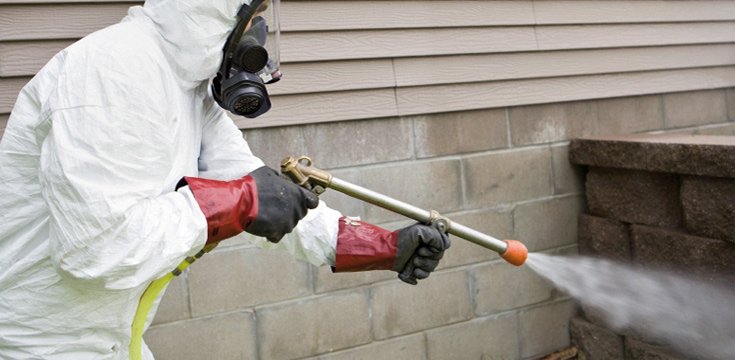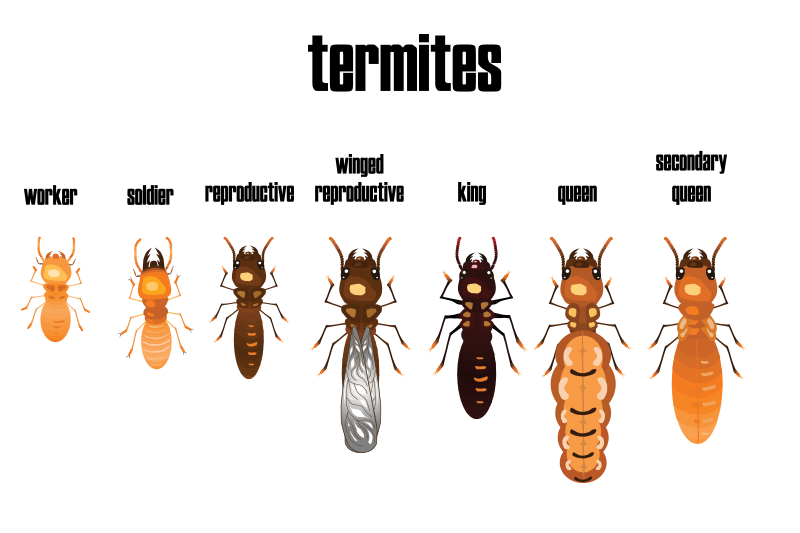Top Ant Control Services: Reliable Solutions for Your Home or Company
Top Ant Control Services: Reliable Solutions for Your Home or Company
Blog Article
Ecological Influence of Pest Control: Balancing Effectiveness With Sustainability
The ecological effect of pest control is a critical concern that calls for a delicate equilibrium in between achieving effectiveness in taking care of bugs and making sure sustainability of our ecological communities. As we aim to safeguard our crops, homes, and health from the threats postured by bugs, the approaches we utilize can inadvertently hurt the atmosphere. From using dangerous chemicals that seep right into our soil and water to the unintended repercussions on non-target types, the repercussions of traditional parasite control techniques are far-ranging. Nevertheless, there are arising approaches that offer hope for an extra lasting method to pest monitoring. These options not just goal to attend to the instant parasite problems however additionally think about the long-lasting health of our planet.
Harmful Chemicals in Pest Control
The utilization of damaging chemicals in parasite control postures significant ecological and wellness dangers that call for cautious factor to consider and reduction approaches. Pesticides, herbicides, and chemicals are generally used to remove insects, but their extensive application can lead to unintended consequences. These chemicals can pollute soil, water resources, and the air, influencing not just the targeted parasites but likewise beneficial bugs, wild animals, and humans.

To address these threats, incorporated parasite monitoring (IPM) strategies are being advertised as a much more lasting choice. IPM involves a mix of methods such as organic control, environment adjustment, and the targeted use chemicals as a last hope (ant control kingsmountain nc). By adopting a holistic technique to pest control, we can minimize the environmental and health impacts related to damaging chemicals while successfully handling pest populations
Influence On Non-Target Species
Considering the unplanned effects of bug control approaches, the effect on non-target types is an important element that requires detailed assessment. While insect control actions intend to target specific parasites, various other microorganisms in the ecological community may be accidentally impacted. Non-target species, consisting of beneficial insects, birds, creatures, and also plants, can endure straight or indirect harm from pesticide applications or organic control methods.
Chemicals can have deadly or sub-lethal effects on non-target types. For instance, pesticides created to combat a specific bug parasite may hurt pollinators like bees or natural predators such as ladybugs. Additionally, chemical residues can collect in the setting, affecting non-target organisms gradually. Organic control representatives, if not species-specific, can pose risks to unexpected targets, disrupting the ecological balance.
To minimize the influence on non-target varieties, incorporated bug monitoring (IPM) approaches that emphasize an alternative method to pest control are suggested. These methods prioritize making use of eco-friendly methods, minimizing injury to useful organisms while efficiently handling pest populations. Performing complete threat analyses and monitoring the end results of pest control initiatives are important action in protecting non-target species and advertising general community health.
Dirt and Water Contamination
Unplanned environmental repercussions of parasite control techniques expand past impacting non-target varieties, with substantial ramifications for dirt and water contamination - termite control. Chemicals, herbicides, and chemical fertilizers utilized in bug control can seep right into the soil and infect groundwater, positioning a danger to both aquatic and terrestrial environments.
Water contamination is an additional essential issue associated with parasite control methods. To reduce soil and water contamination from pest control tasks, incorporated bug administration techniques that prioritize sustainability and minimize chemical inputs are crucial.
Air Pollution From Chemical Usage
Exposure to air-borne pesticides throughout agricultural applications positions a substantial worry for air pollution control steps. Additionally, chemical drift, where pesticides are lugged by the wind to unexpected locations, can lead to the contamination of close-by ecological communities and water bodies.

Strategies for Sustainable Bug Control
In the world of farming methods, executing sustainable parasite control approaches is extremely important for keeping ecological balance and protecting crop returns. Lasting bug control stresses making use of ecologically friendly techniques to handle insect populations successfully while decreasing injury to non-target organisms and ecological communities. Integrated Parasite Management (IPM) is a widely taken on strategy that incorporates organic, cultural, physical, and chemical control methods to attain long-lasting pest monitoring solutions.
One trick approach in lasting parasite control is advertising biodiversity within agroecosystems. By improving natural opponents of insects, such as parasitoids and predators, farmers can lower the demand for artificial pesticides. Crop turning and diversity are likewise effective techniques to interfere with pest life process and produce less positive conditions for parasites to prosper. Furthermore, using pest-resistant plant ranges and employing strategies like catch cropping can help lower bug pressure without counting greatly on chemical interventions. Ultimately, by incorporating these sustainable parasite control methods, farmers can achieve an equilibrium in between pest administration effectiveness and ecological stewardship.
Verdict
In final thought, the ant control thomaville nc ecological influence of bug control methods have to be thoroughly taken into consideration to balance efficiency with sustainability. Damaging chemicals utilized in insect control can cause dirt and water contamination, air pollution, and damage non-target types - ant control. It is essential to apply lasting pest control methods to decrease these adverse effects on the environment and promote a much healthier ecosystem for future generations
By embracing an alternative strategy to pest control, we can decrease the environmental and health effects linked with harmful chemicals while efficiently handling pest populations.

To minimize the air pollution created by pesticide use, it is necessary to adopt incorporated pest administration strategies that prioritize the usage of non-chemical bug control methods, such as plant turning, natural predators, and immune crop ranges. Lasting pest control highlights the usage of ecologically friendly approaches to manage insect populaces effectively while lessening harm to non-target microorganisms and environments. Integrated Pest Monitoring (IPM) is an extensively adopted strategy that integrates organic, cultural, physical, and chemical control methods to attain lasting insect administration options.
Report this page